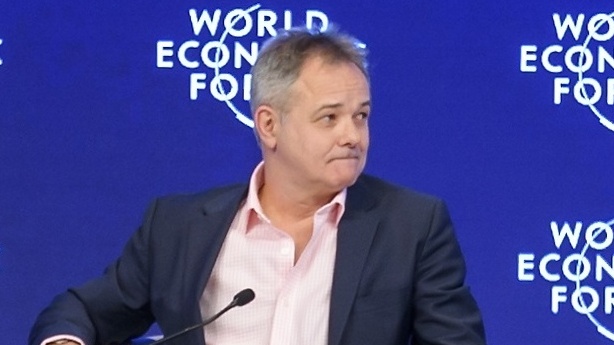Why Sage expert Jeremy Farrar has walked out
Top scientist quits government advisory body as he warns the pandemic is ‘a long way from over’

A free daily email with the biggest news stories of the day – and the best features from TheWeek.com
You are now subscribed
Your newsletter sign-up was successful
A top expert for the government’s Scientific Advisory Group for Emergencies (Sage) has quit the advisory body as he warned that levels of coronavirus transmission across the UK were “concerning”.
Sir Jeremy Farrar, who is director of the Wellcome Trust and a leading member of the Covid advisory body, left Sage at the end of October, he confirmed in a statement.
The leading scientist was pushing ministers to adopt a “vaccine plus” strategy, calling for more mask-wearing, ventilation and continued coronavirus testing to help the country get through a difficult winter, reported Sky News.
The Week
Escape your echo chamber. Get the facts behind the news, plus analysis from multiple perspectives.

Sign up for The Week's Free Newsletters
From our morning news briefing to a weekly Good News Newsletter, get the best of The Week delivered directly to your inbox.
From our morning news briefing to a weekly Good News Newsletter, get the best of The Week delivered directly to your inbox.
But the government has so far resisted calls to enforce stricter Covid rules under its so-called Plan B measures, instead choosing to continue with its current guidance.
In a statement released on Tuesday night, Farrar confirmed that he stepped down to focus on his work at the health research foundation the Wellcome Trust.
But he warned that “the Covid-19 crisis is a long way from over” and outlined the “huge pressure” the scientific advisory body had faced during the pandemic.
“The high levels of transmission seen in the UK remain concerning, but I stepped down as a participant of Sage knowing ministers had been provided with most of the key science advice needed over the winter months,” he continued.
A free daily email with the biggest news stories of the day – and the best features from TheWeek.com
“Throughout this crisis, Sage has provided vital evidence and independent, expert, transparent advice to support the UK response, often under huge pressure.
“It has been an honour to have joined the hundreds of scientists who have contributed, and I thank Patrick Vallance and Chris Whitty for outstanding leadership. I remain, as always, available where I may offer help as a clinical scientist or as director of Wellcome.”
The statement appeared to be a “coded criticism of the government’s stance” that stricter measures are not currently necessary, said The Independent.
And it will add to the suspicions of experts who have previously suggested that ministers have “pushed back” against scientific advice in an attempt to avoid long-term damage to the UK economy through further lockdowns, making the job of advisors “difficult”, said Sky News.
In July of this year, Farrar said he “seriously considered” resigning from Sage nearly a year before, after the government chose not to introduce a lockdown in September 2020, continued the broadcaster.
So far the government has insisted that the data does not yet show that stricter Covid measures, or enforcing Plan B, are necessary. Yet there is some evidence that the government has “seriously” looked at implementing the Plan B strategy this winter until the end of March 2022, after Politico obtained government documents that suggested a switch to the more stringent Covid rules could cost the UK economy up to £18bn in damage.
“We can confirm that Sir Jeremy has stood down from the Covid Sage activation, and thank him for his contribution from the very start of the activation,” said a government spokesperson.
“Sage continues to provide Government with independent expert scientific and technical advice.”
-
 Why is the Trump administration talking about ‘Western civilization’?
Why is the Trump administration talking about ‘Western civilization’?Talking Points Rubio says Europe, US bonded by religion and ancestry
-
 Quentin Deranque: a student’s death energizes the French far right
Quentin Deranque: a student’s death energizes the French far rightIN THE SPOTLIGHT Reactions to the violent killing of an ultraconservative activist offer a glimpse at the culture wars roiling France ahead of next year’s elections
-
 Secured vs. unsecured loans: how do they differ and which is better?
Secured vs. unsecured loans: how do they differ and which is better?the explainer They are distinguished by the level of risk and the inclusion of collateral
-
 A Nipah virus outbreak in India has brought back Covid-era surveillance
A Nipah virus outbreak in India has brought back Covid-era surveillanceUnder the radar The disease can spread through animals and humans
-
 Covid-19 mRNA vaccines could help fight cancer
Covid-19 mRNA vaccines could help fight cancerUnder the radar They boost the immune system
-
 The new Stratus Covid strain – and why it’s on the rise
The new Stratus Covid strain – and why it’s on the riseThe Explainer ‘No evidence’ new variant is more dangerous or that vaccines won’t work against it, say UK health experts
-
 RFK Jr. vaccine panel advises restricting MMRV shot
RFK Jr. vaccine panel advises restricting MMRV shotSpeed Read The committee voted to restrict access to a childhood vaccine against chickenpox
-
 RFK Jr. scraps Covid shots for pregnant women, kids
RFK Jr. scraps Covid shots for pregnant women, kidsSpeed Read The Health Secretary announced a policy change without informing CDC officials
-
 New FDA chiefs limit Covid-19 shots to elderly, sick
New FDA chiefs limit Covid-19 shots to elderly, sickspeed read The FDA set stricter approval standards for booster shots
-
 RFK Jr.: A new plan for sabotaging vaccines
RFK Jr.: A new plan for sabotaging vaccinesFeature The Health Secretary announced changes to vaccine testing and asks Americans to 'do your own research'
-
 Five years on: How Covid changed everything
Five years on: How Covid changed everythingFeature We seem to have collectively forgotten Covid’s horrors, but they have completely reshaped politics